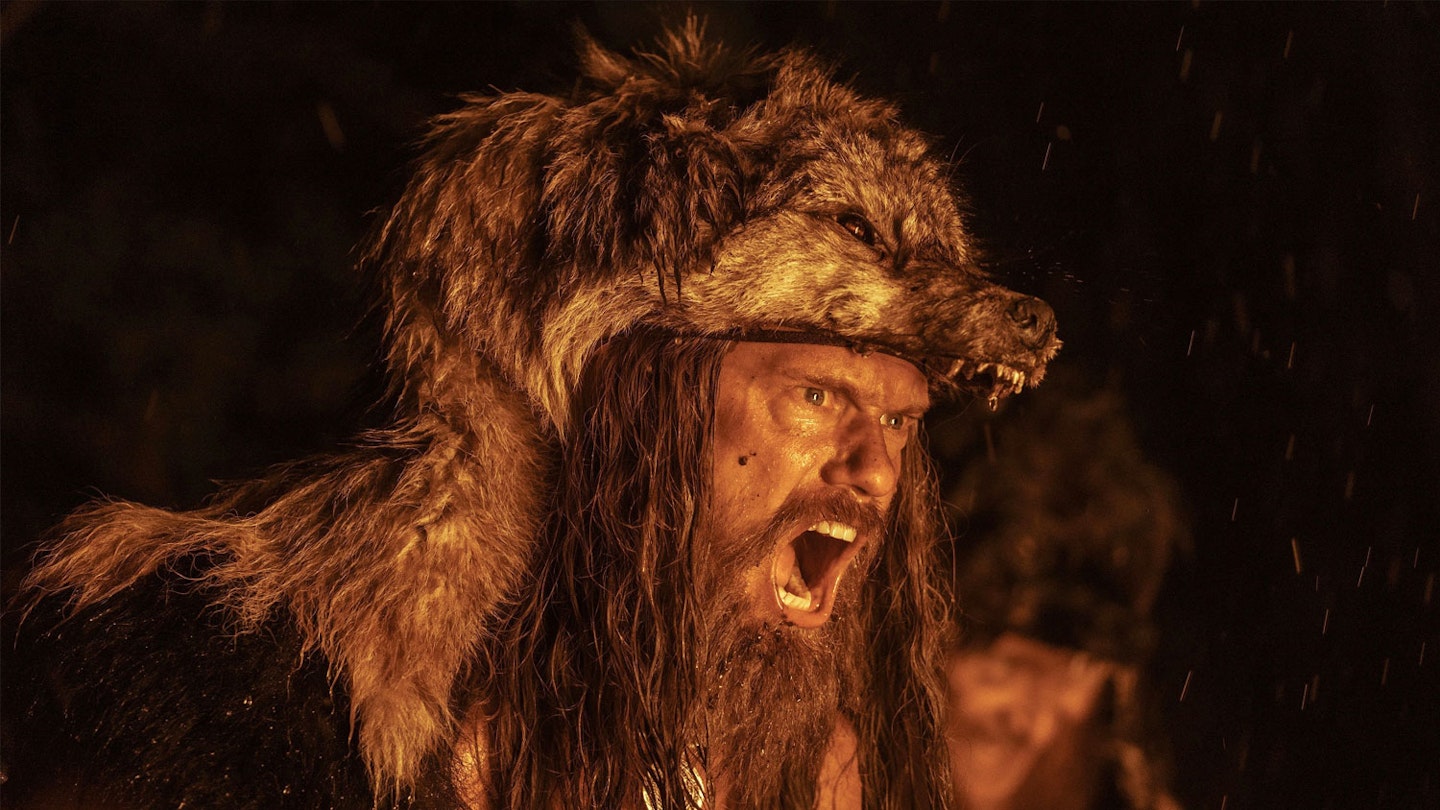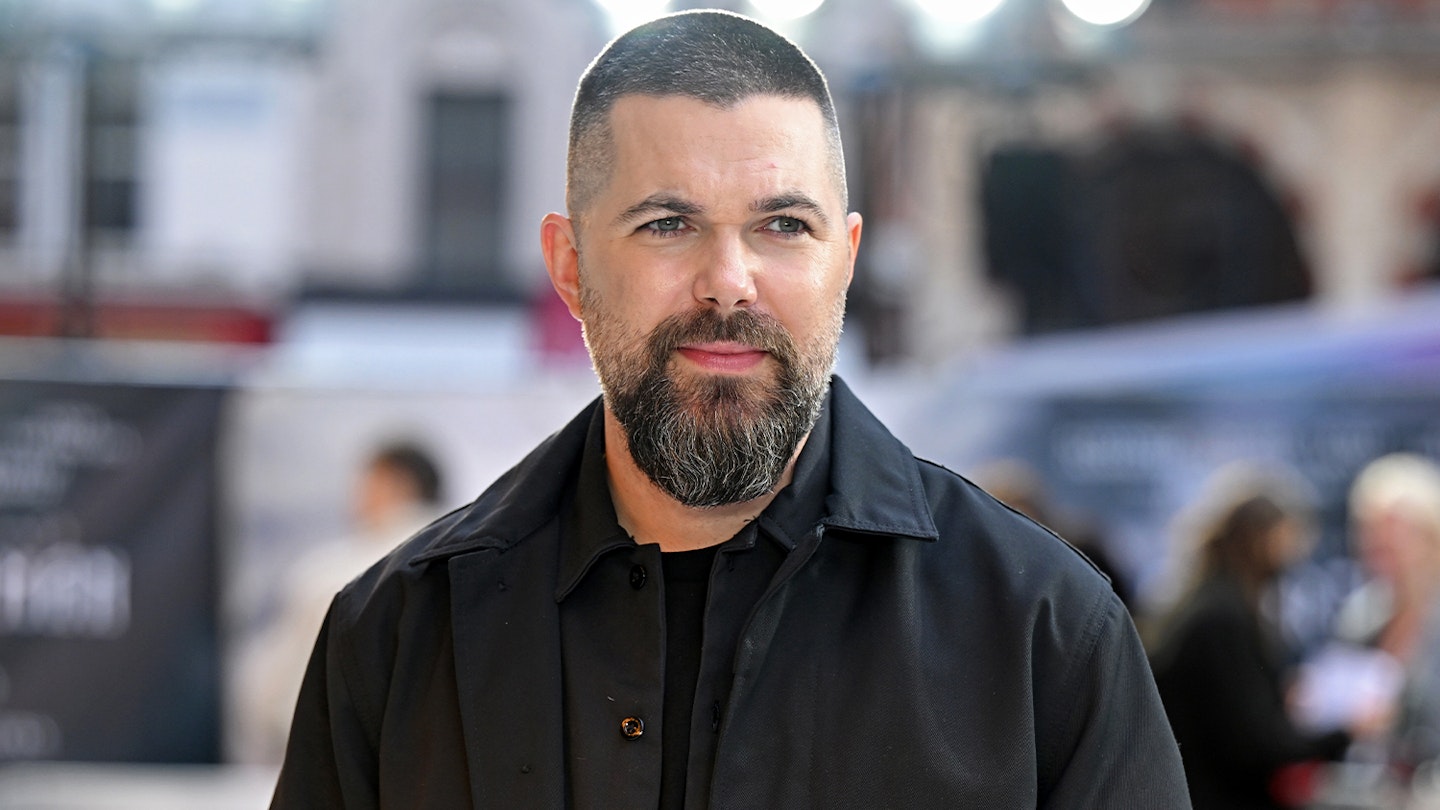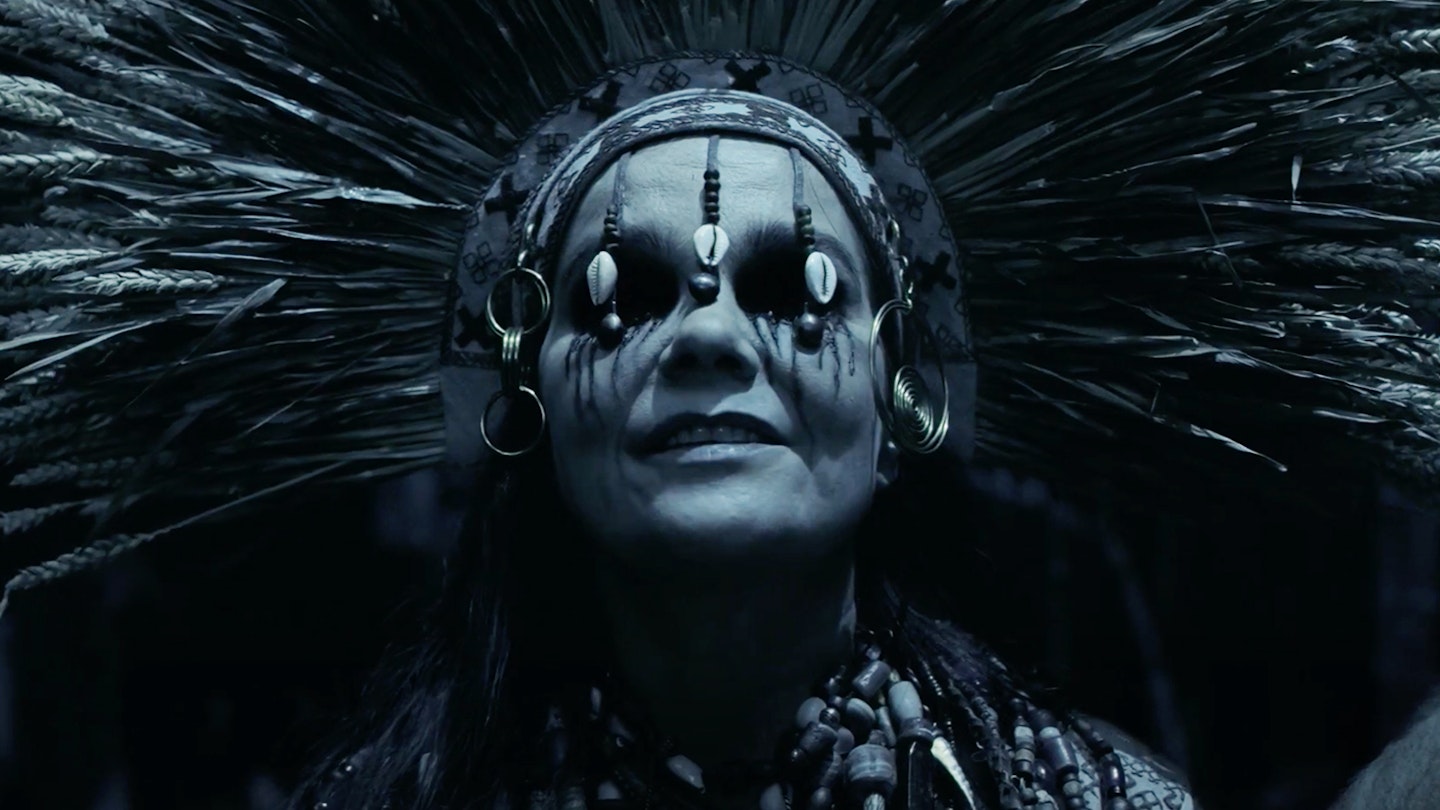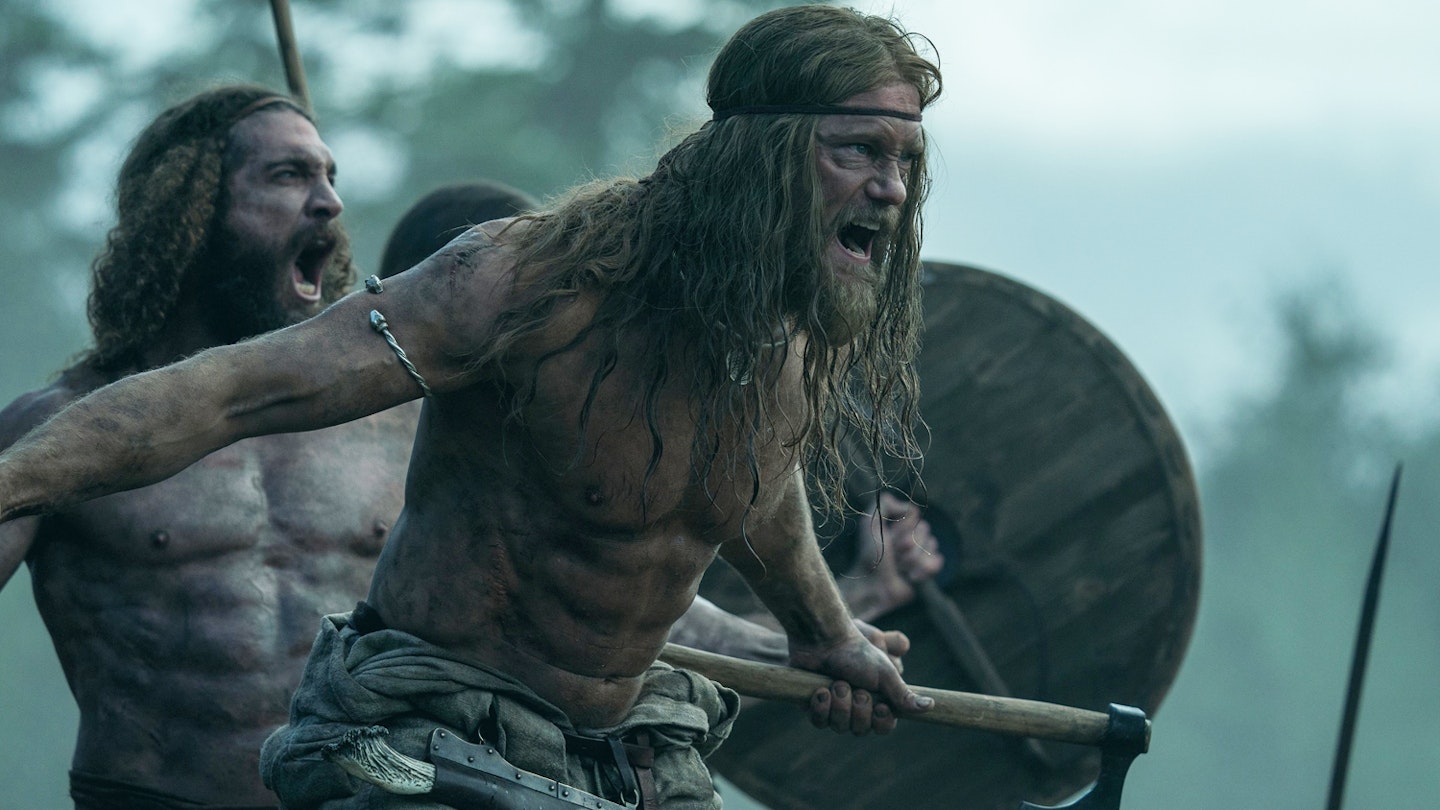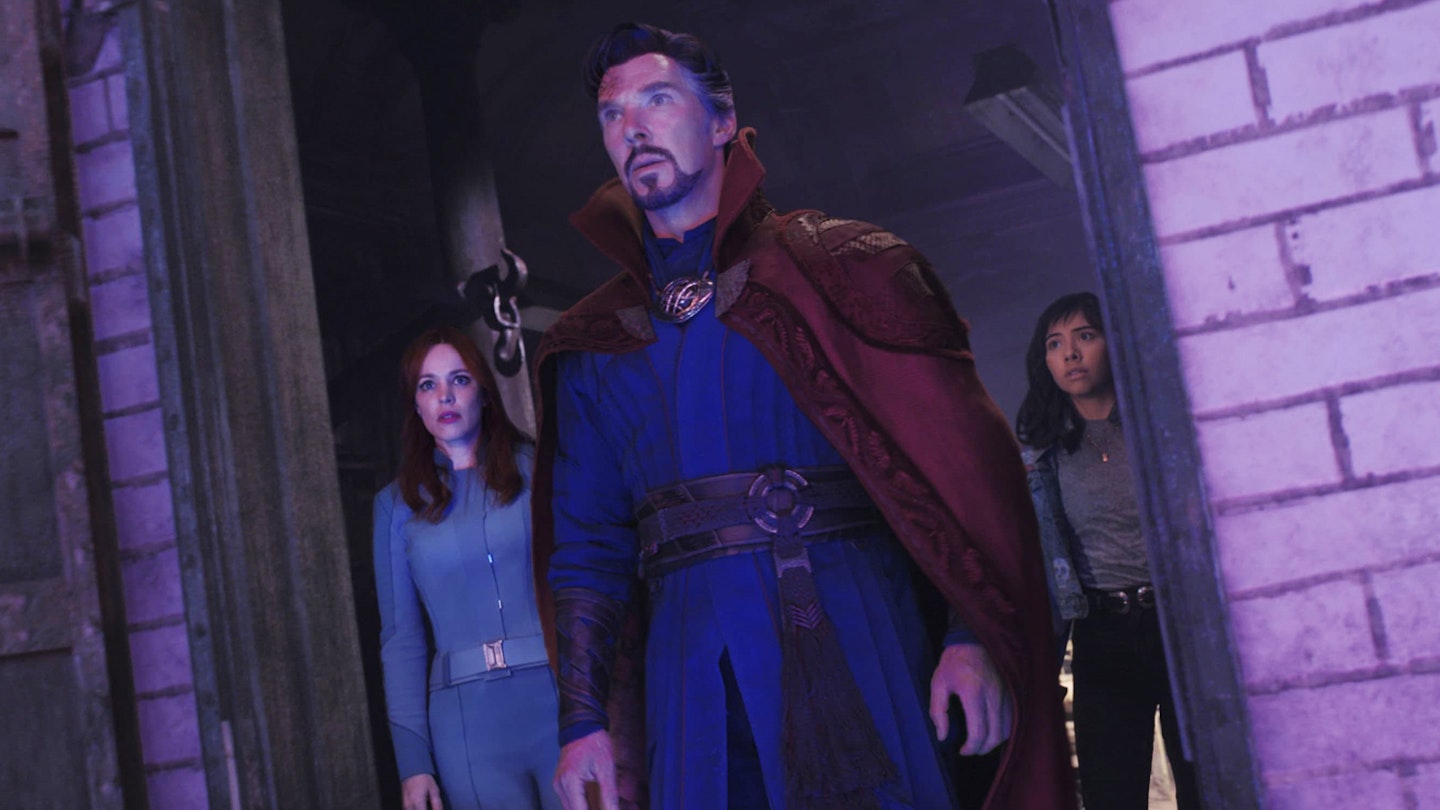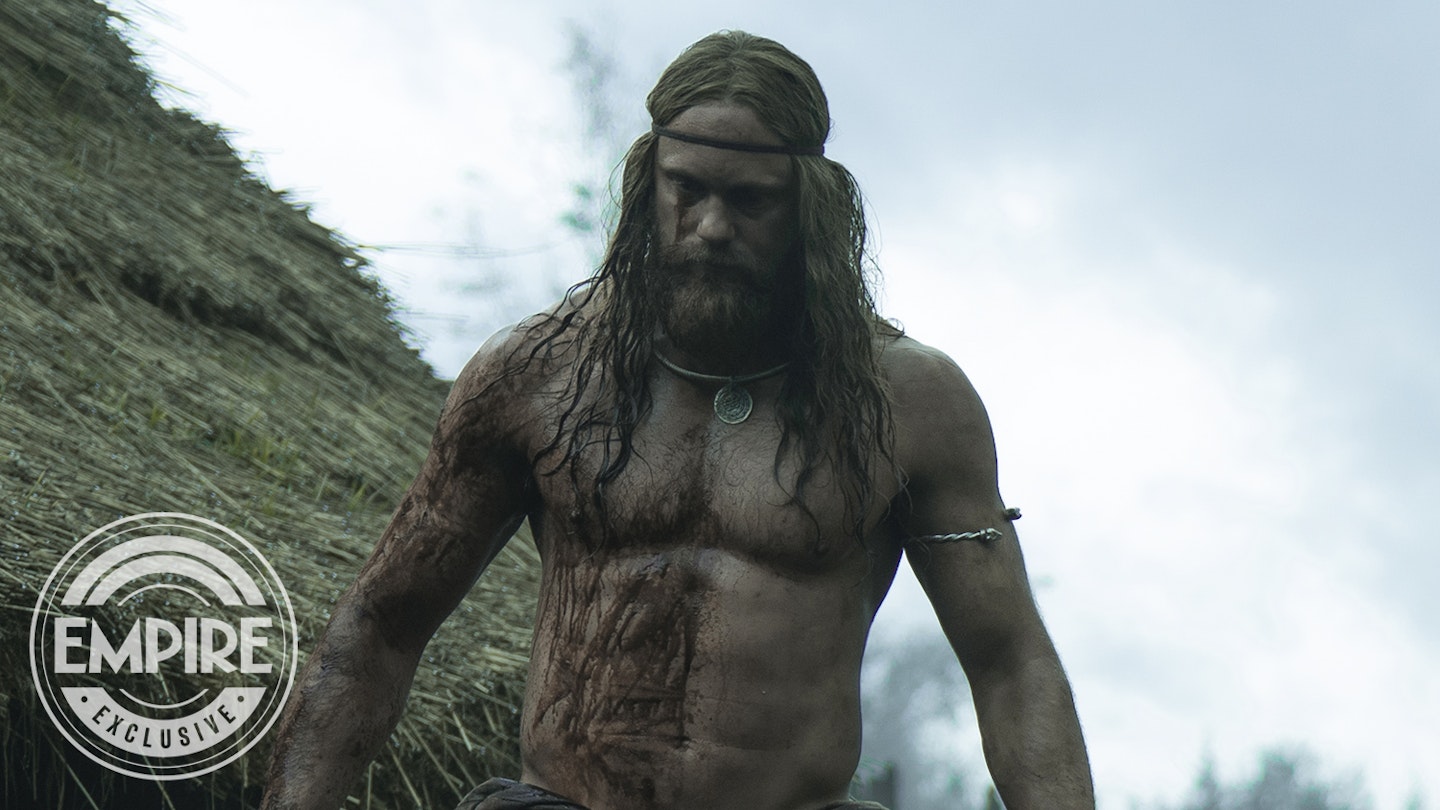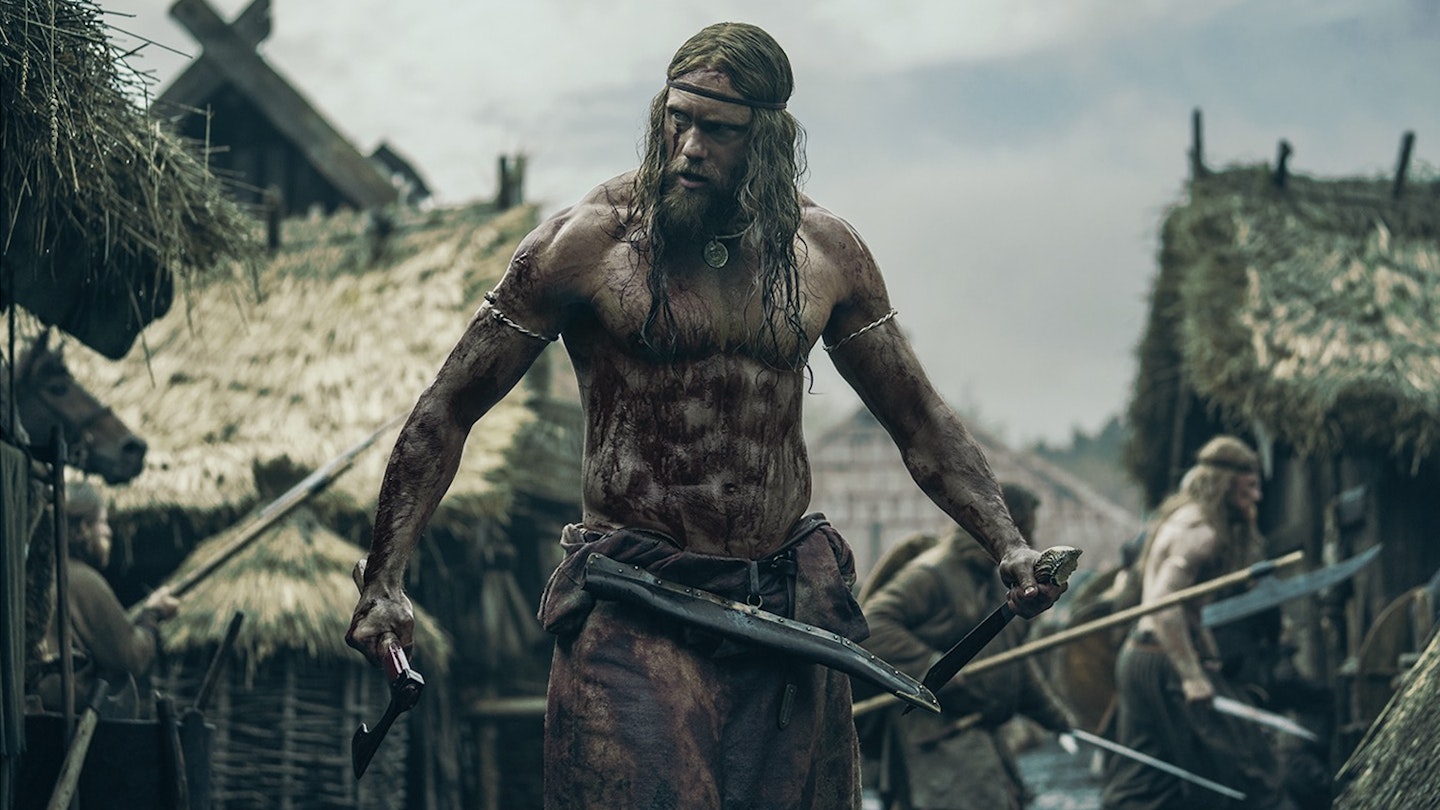No filmmaker in the last 20 years has done folklore quite like Robert Eggers. The Witch and The Lighthouse showcased his skilful ability to transpose the stories of old into celluloid form, without losing the historical, mystical and cultural veracity of their origin, and both have been weird and wacky gifts to behold. Yet these intimate portraits of North American myth are a whole different ballgame compared to the Viking legend of Eggers’ latest cinematic endeavour. To say he’s stepped it up a notch would be an understatement — the man’s smashed it right out of the park.
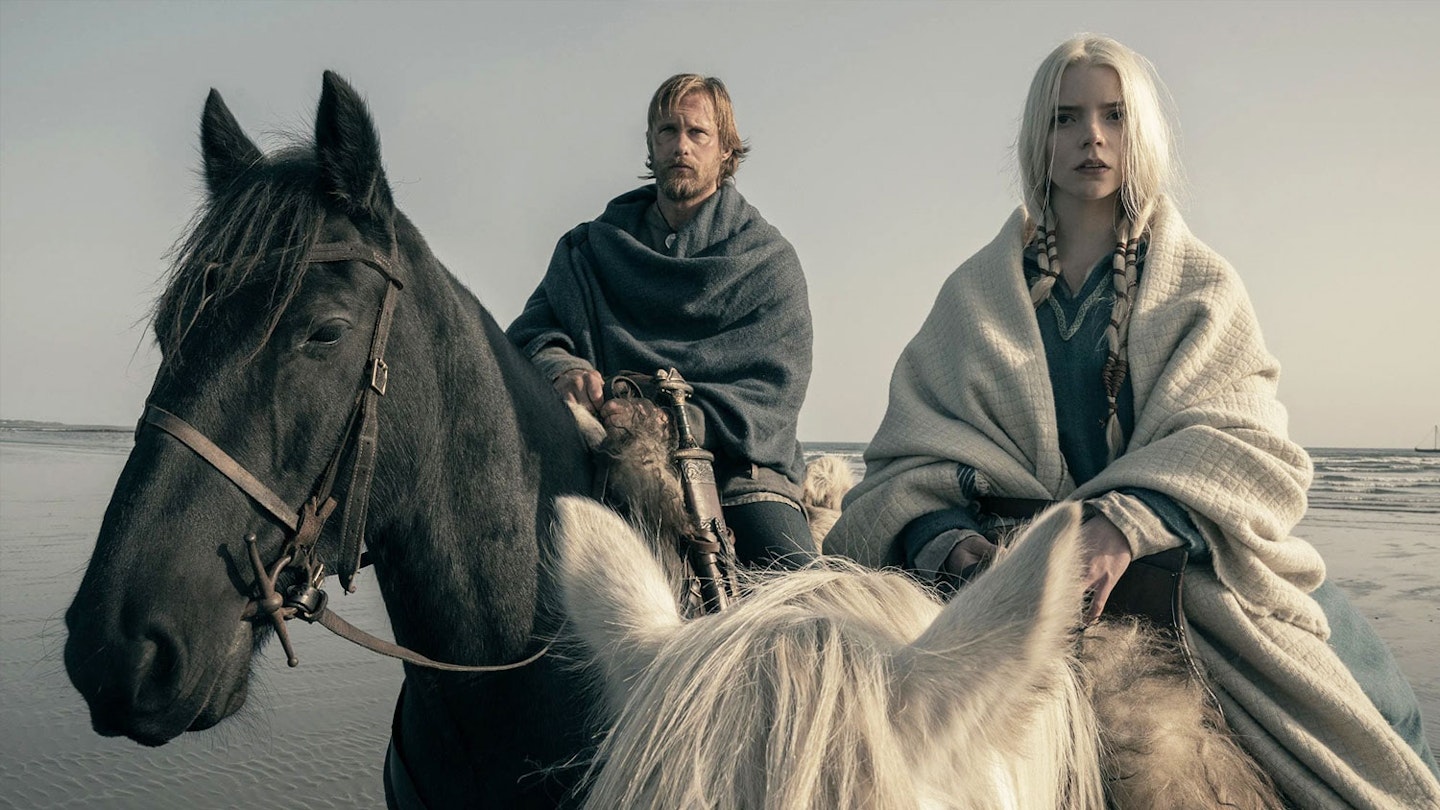
In an ambitious exploration of Nordic mythology, various gods are worshipped — anyone familiar with Marvel’s take on the Thor franchise will recognise names such as Odin or Freyja — but this is very much the brutal story of man. One man, in particular: Prince Amleth, a beast of a warrior played with feral intensity by Alexander Skarsgård. He stalks across the screen, shoulders hunched forward and carrying the weight of every kill he’s committed since fleeing his home as a cub after witnessing the murder of his father, King Aurvandil (Ethan Hawke), by his uncle Fjölnir (Claes Bang), in a power move to take over their kingdom in the North. If this tale feels similar to Hamlet, that’s because Eggers and his co-writer, Icelandic poet Sjón, took inspiration from the same 12th-century Danish story as Shakespeare. But the two have expertly interwoven mystical strands of Icelandic fable into five, multilayered chapters of bombastic drama, steeped in so much familial conflict, barbaric romance and bloodthirsty violence that after two-and-a-half hours, your mind, body and soul might just need an ice bath to recover.
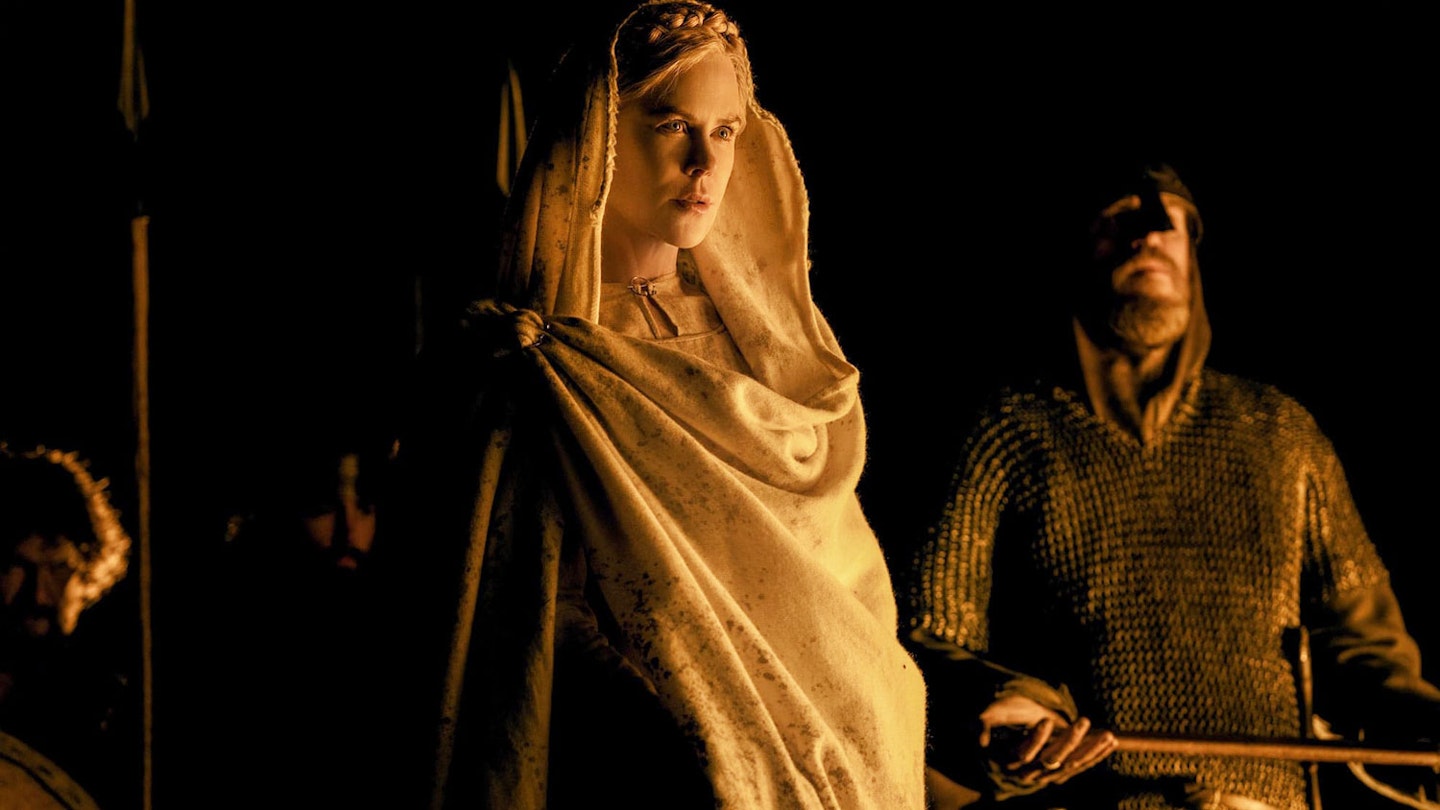
Each vignette of action is articulated with such high-octane precision and depth by cinematographer Jarin Blaschke that no performance is wasted. In one sequence, the camera tracks Amleth roaring into action, sprinting at an encampment as spears and arrows whip past his naked body before he launches onto its high, wooden wall, hauls himself over and, with an axe, meets the heads, necks and backs of several opponents. Later, as he prowls through the village and turns out of shot, we witness the unrelentingly cruel violence visited upon defenceless women and children, before he returns to the frame in murderous fashion. Long takes like these, accompanied by composers Robin Carolan and Sebastian Gainsborough’s pulsating score, throbbing with drumbeats and low notes, emphasise the savage spectacle and unforgiving harshness of these times, but also the powerful physicality of Skarsgård.
Skarsgård seems possessed with Old Nordic fire, showing both melancholy and a taste for blood.
The Swedish actor has long wanted to play a Viking, and Eggers has created the perfect environment to truly bring out the berserker within. Whether it’s in the natural light against backdrops of forests, mountains, seas and rivers or behind the veil, on the rich, black-and-white plane of gods, dead kings and valkyries, Skarsgård seems possessed with Old Nordic fire, showing both melancholy and a taste for blood. It’s quite unlike anything he’s done before.
In such a wild historical epic, each actor, in fact, brings a willingness to throw themselves into the madness. Anya Taylor-Joy holds her own as white witch Olga of the Birch Forest, a character who is as radiant as she is resourceful, imbued with quiet confidence and emotional rigour. Hawke and Willem Dafoe — as Heimir the Fool — are riotously primeval in an early rite-of-passage scene; Björk’s seeress is pure magic; and Bang brings dignity and believable lethality to his chief antagonist. Nicole Kidman, meanwhile, is positively chaotic as Amleth’s queen mother, with a role that puts her son’s whole worldview into question. That’s the beauty of this story of heroes and villains, good and evil: it’s all about perspective, and Eggers’ vision of the Old World is one that closes in on the fallacies of men who are willing to kill and die for the sake of legacy, honour and tradition. He takes us on a bloody, merciless voyage across land, sea and otherworlds, culminating with a cathartic third-act battle realised in blazing glory. “Til Valhall!”, indeed.
